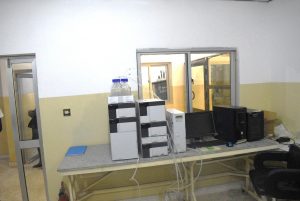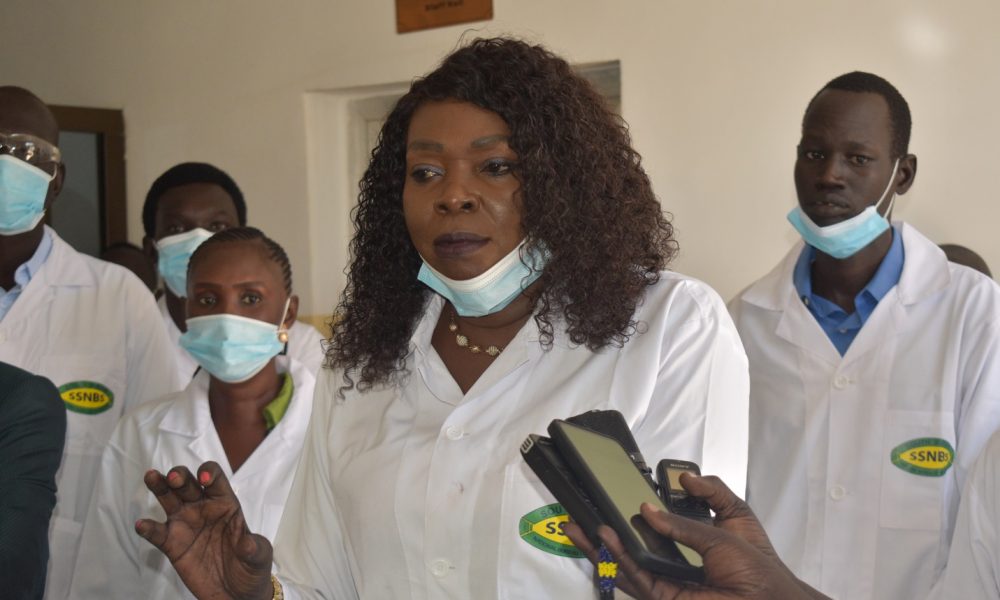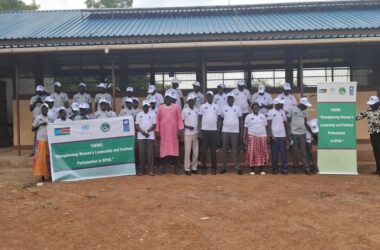By William Madouk
South Sudan National Bureau of Standards (SSNBS) has given a face-lift to a multi-functional laboratory in Juba, which is expected to start operations next week.
On Monday, the boss of SSNBS, Mary Gordon, inspected the Juba Central Laboratory, a food safety lab that is used for testing edible products.
Addressing the media, Mrs. Gordon said there are three lab sections with all the latest testing instruments sitting on the desk, such as high-performance liquid chromatography (HPLC) for testing aflatoxin.
In a spot check, she showed other lab sections containing instruments for chemistry testing as well as microbiology.
“As you see them now, this is the biggest instrument we have, but they are the latest. What they call the state of the arts They are in this room. Then that one is, of course, general chemistry, where all the testing and chemistry happen. And then there is microbiology,” Mrs. Gordan (pictured) explained the machines on display to journalists.
She added that they would work to make sure that this lab is certified. But that Mrs. Gordan noted could only happen if those staff got proper training, which is slated for November 2023, although some are well off for the job.
“The lab is not certified yet; we’re going to work through the process of certification. Certification does not just require the instrument. It takes the people as well,” Mrs. Gordon noted.
“So, they have to be properly trained on how to use instruments and get results that can be trusted,” she continued.
The SSNBS boss stated that the instruments are ready now because they’ve been cleaned.
“They’ve been calibrated; they’re ready for use.”

“This is an atomic absorptor spectrometer; this is used for heavy metals, for analyzing heavy metals,” he added.
Others include the DR5000 used for analyzing water, the fluorometer for polarizations of sugar, the refractometer for analyzing honey, and some parameters of oils, among other testing instruments.
SSNBS has previously shown concern over the increasing rate of substandard products, with a multi-functional lab for testing edible products such as oil, honey, cereal, meat, fish, etc.
With the latest technologies at hand, South Sudan is now in a better position to weed out inferior food.
Another lab expert, Mr. Tombe Abu Labart in the microbiology department, said their work in the lab starts with sampling.
“We have a communication system for sampling. They get the sample from the place where they’re supposed to get it from.” He explained.
He cited that when samples are determined, they could then be sent either to a chemistry or microbiology lab for testing.
“So, the sample comes, we receive it, and we do the registration with the details of the sample. After that, we determine the sample,” he clarified.



